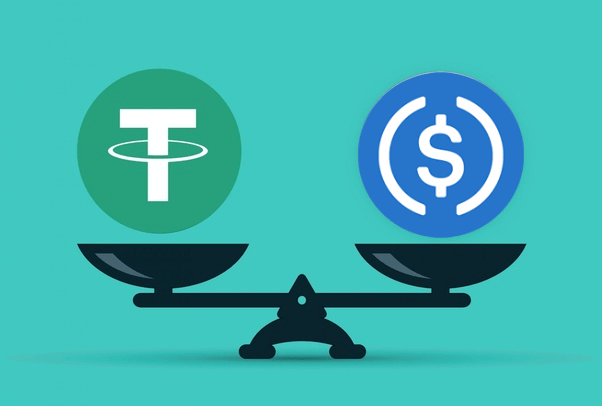In order to achieve standardization, synchronization, and effective use of information in databases, serving state management and socio-economic development, the Ministry of Public Security is proposing the construction of a Data Law. The proposal for the construction of the Data Law is being solicited for comments from agencies, organizations, and individuals.
INCOMPLETE LEGAL CORRIDOR REGARDING DATA
According to the Ministry of Public Security, the implementation of relevant legal regulations regarding data in recent years has shown the determination, leadership concentration, direction of the National Assembly, the Government, ministries, sectors, and localities in perfecting the institutions to establish a legal corridor to facilitate the development of this field, contributing to the rapid development of data in Vietnam.
Data has become a valuable resource and an important factor in creating economic value. Developing data provides a platform for deploying, ensuring the provision of digital data for online public services, seamless data sharing between state agencies, providing open data sets of high quality and exploitable value, opening data in accordance with legal regulations to develop the digital government, digital economy, and digital society.
Implementing legal documents that have provisions on data have seen many innovative models and methods; many ministries, sectors, and localities have actively connected, integrated, and shared data between state agencies, businesses, and localities; especially data from national databases and information systems of scale and scope from central to local level, maximizing the value of data, improving the quality of public services provided to citizens and businesses with a user-centric approach, where citizens and businesses do not have to provide information manually multiple times to state agencies, service providers, avoiding duplicative investment and waste.

The implementation of legal documents related to data has contributed to perfecting the law, meeting the state management requirements for data, enhancing Vietnam’s position on the world map of digital technology and ensuring security, and safety, towards digital government, digital economy, digital society, and better serving the people and businesses.
However, Vietnam’s legal corridor regarding data is still incomplete; there is no regulation regarding connecting and interconnecting the national digital data repositories to form a centralized data repository, creating a single window mechanism for accessing and exploiting data. There are no specific regulations on the distribution, reuse of data to create new value from data resulting in non-classification of data. There is no legal provision for building data strategies, data management, data protection; there are no principles in connecting, sharing, exploiting, and using shared national information and data.
At the same time, there is no unified data standard, resulting in various types of data, including classified data, sensitive data, open data… connection and sharing mechanisms between units are inconsistent and appropriate. National databases, specialized databases, information infrastructure at the scale from central to local level, have been slowly deployed, put into national-scale exploitation (the typical example is the national land database);
The national data infrastructure is still fragmented, the quality is uneven and not high. The sharing of national data, in particular, and databases from central to local level cannot meet the requirements. Business data is scattered, local, and closed. Personal data is still being exploited, traded illegally…
PROPOSAL FOR 4 MAJOR POLICIES IN THE DATA LAW
According to the Ministry of Public Security, the construction of centralized databases is a common trend in countries worldwide today. Building and developing the National General Database with data associated with humans and data aggregated from national databases will be the main data pillar to establish a platform for the development of digital government, promote digital economy and form a digital society.
The establishment of reliable and stable data systems of the State and businesses will then deploy connection solutions to share, reuse, and develop in-depth data analysis models/applications to create many new values, new service products, and new motivations for economic and social development in Vietnam’s digital transformation period.
Investing in, upgrading, expanding, and storing information in the National General Database will save a lot compared to investing in separate systems to store this information.

The information stored in the National General Database will also be shared for exploitation purposes between ministries, sectors, localities; data management agencies do not need to establish additional dedicated connection and sharing channels for information that has been supplemented and stored in the National General Database.
Through review, the Ministry of Public Security found that there are 69 laws governing databases (national databases, specialized databases). Among them, only a few laws have provisions on the responsibilities of the database management agency in constructing, collecting, managing, operating, connecting, sharing, exploiting, using information in databases. Currently, based on legal regulations, ministries and localities have implemented the construction of databases to serve state management work, including nearly 40 national databases and nearly 50 specialized databases.
However, most laws do not specify or unify the construction, collection, management, operation, connection, sharing, exploitation, and use of information in databases. There is currently no law regulating services related to data, regulating the development platforms, data application trends that are developing worldwide such as AI technology, cloud computing, Blockchain, data communication technology, IoT, BigData…
Therefore, there needs to be a Data Law to regulate these issues in order to achieve standardization, synchronization, and effective use of information in databases, serving state management and socio-economic development.
The Ministry of Public Security proposes and recommends the construction of a Data Law with 4 major policies: provisions on the construction, development, processing, management, and application of data; provisions on the national centralized database; provisions on the National Data Center, and provisions on products and services related to data.











































